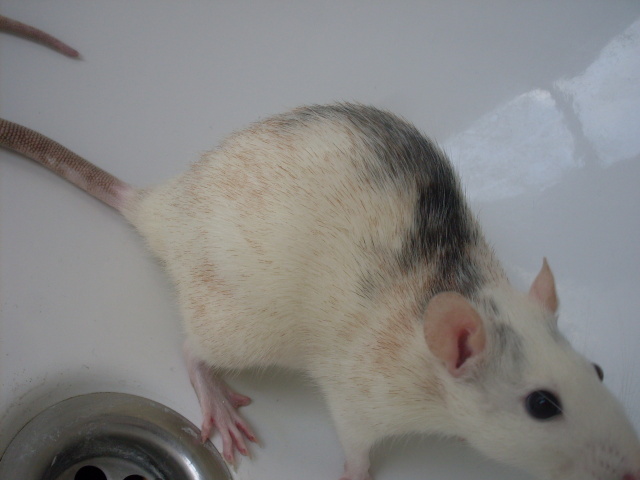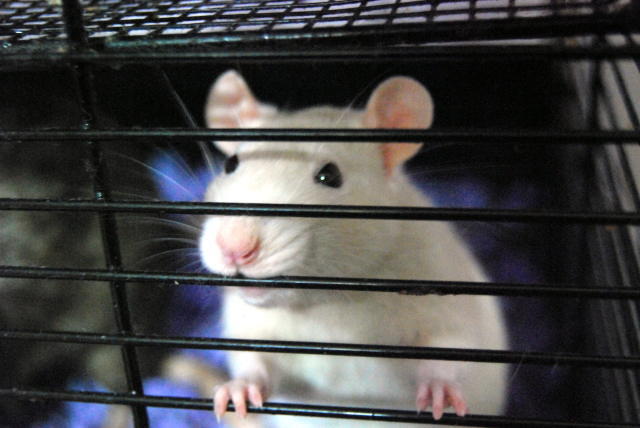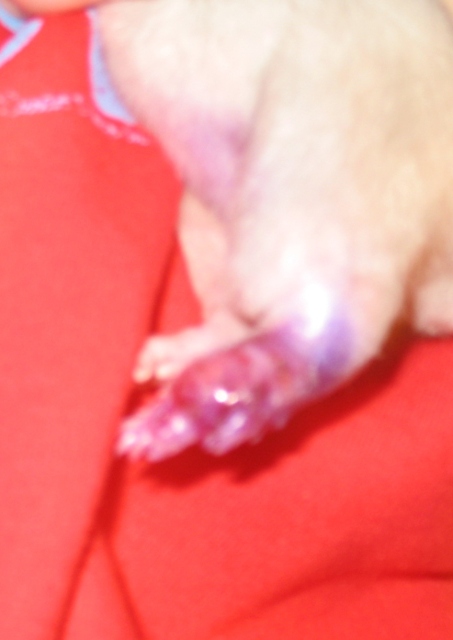QuestionQUESTION: Recently our rat passed away from heart disease we had no idea she had until after her death. It took us completely by surprise!
My wife preserved in the refrigerator to prevent decomposition of the body until I returned home from work (I am an Emergency room Physician) and I brought the rats remains to an animal pathologist that performed a gross necropsy. The findings were Hypertrophic Cardiomyopathy as the heart was significantly enlarged. The pericardium was rigid with fluid. Although no tumors were found, the report clearly stated disseminated intravascular coagulation which would probably explain why the other organs failed, or began to fail. Since DIC would disrupt normal blood flow to organs, namely the kidneys, this would be another cause of death as you know. My point is, usually death is not sudden in these cases, or at least with humans it isnt, thus resulting in a fair chance to treat these patients successfully.
The fluid around her heart prevented the lungs from expanding and the heart from beating properly but I am still curious as to what could cause fluid of that amount to accumulate around her heart so fast?
Is it the faster metabolic rate that rats display that would speed up the process? What method of treatment would a Vet use on our little girl to treat hear and improve her quality of life?
ANSWER: Heart disease is REALLY common in rats, believe it or not, especially in overweight and older rats. Early symptoms of heart disease, congestive heart failure, etc. are your normally energetic rat slowing down, perhaps being a little more cuddly, breathing with her mouth open, sitting on the tallest ledge in her cage with her head hung over it, and eating a little slower than usual. Decreased water consumption can also be noted. Most think their rat is getting the old-rat sniffles (that chronic myco infection that you just keep treating to keep it at a decent level). Had you been able to catch it early enough, your vet probably would have put her on lasix.. the exact same kind used for people, just a little tiny amount. It's a fixer dose, every day and sometimes twice a day. In my experience, you can squeeze usually 3 to 4 more months out of a rat with REALLY advanced heart disease.. but I have heard of people keeping their rats on Lasix for a year or so, also.
Rats are first and foremost a prey animal, so they tend to hide their weaknesses... so often we miss the early symptoms that are key in diagnosing something before its "too late" to treat. I'm sure this is probably what happened in your case, to some degree. A lot of rats are just too busy/too happy to let it bother them, so they "ignore" it (which I KNOW you've seen, being a doctor!), and suddenly it comes back to bite them. If only rats could talk... it would make our lives a bit easier, wouldn't it?
I'm very sorry for your loss.. I wish you both the best.
---------- FOLLOW-UP ----------
QUESTION:
I can understand the lasix to rid the excess fluid build up but this is not treating the disease head on and only treating the symptom. Is there a way to treat the heart disease other than lasix? The key would be to treat the heart disease so there is no excess fluid building up. I guess what I want to know is what drugs can rats take, if any, for heart disease that would treat cardiomyopathy other than using a diuretic such as an ACE inhibitor or beta blocker?
AnswerI have heard of people who have discussed using beta blockers with their rats; but to what extent, I don't know (and I don't know if they actually followed through or if they were just discussing it potentially). I'm not a vet and I have no training with it -- I'm simply a breeder with hands-on experience, not text-book experience. You might want to ask Sandra Todd -- she has MUCH more experience with CHF/heart disease in rats than I do, and would know more of the medical jargon. (She can be found as an expert in this section)

 2 female pet rats- what looks like blood specs on fur?
Question
Zepplin
Hi there Sandra...
I got my rats about
2 female pet rats- what looks like blood specs on fur?
Question
Zepplin
Hi there Sandra...
I got my rats about
 Tumors
Question
My Cinnamon
Hi,
I consider myself to b
Tumors
Question
My Cinnamon
Hi,
I consider myself to b
 Bone cancer or severe bumblefoot
Question
Paige foot
Sandra,
About 6 months ago one of
Bone cancer or severe bumblefoot
Question
Paige foot
Sandra,
About 6 months ago one of
 are newborn ratties nursing ?
QuestionQUESTION: **** I have a concern and found you t
are newborn ratties nursing ?
QuestionQUESTION: **** I have a concern and found you t
 Half swollen face and eye looks like it could pop out.
QuestionQUESTION: My rat, Sage, has always been very sn
Half swollen face and eye looks like it could pop out.
QuestionQUESTION: My rat, Sage, has always been very sn